The Most Versatile Tool for Your Factory Floor
Form 4 is a blazing-fast SLA 3D printer
Form 4 breaks through speed barriers with the innovative Low Force Display Print Engine. This powerhouse combines ultra-high power LEDs, precision lenses, specialized filters, and a robust LCD screen. The result? Rapid curing of every resin layer, no matter the part size or how many you're printing.
Backlight
Unmatched optical power
Form 4's secret weapon for exceptional speed and precision is the innovative Backlight Unit. This powerhouse utilizes 60 ultra-high power LEDs paired with collimating lenses. Together, they project a uniform sheet of light across the entire build platform, curing resin rapidly and precisely. The result? Blazing-fast print speeds without sacrificing accuracy. Every part, regardless of location, is printed with exceptional quality.
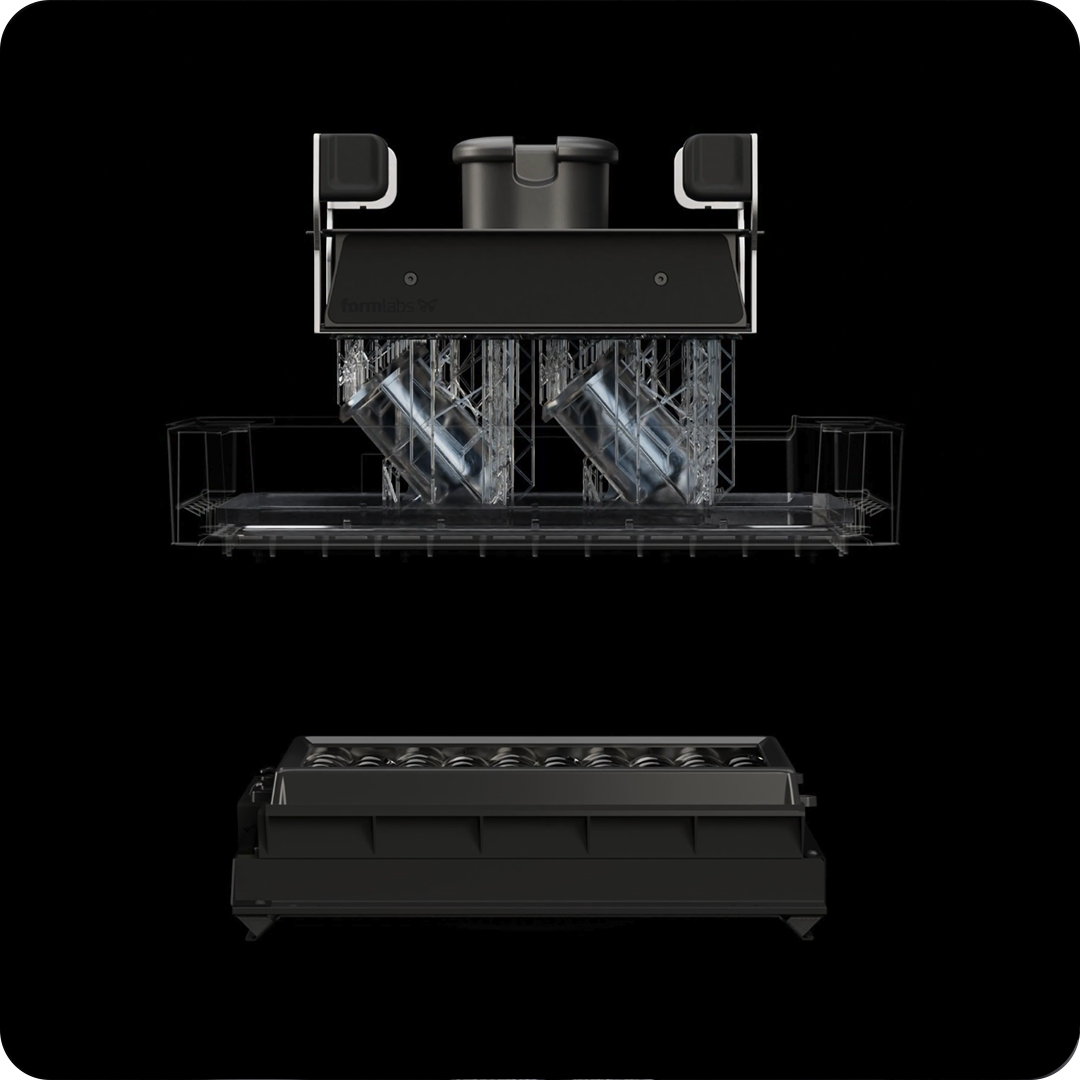
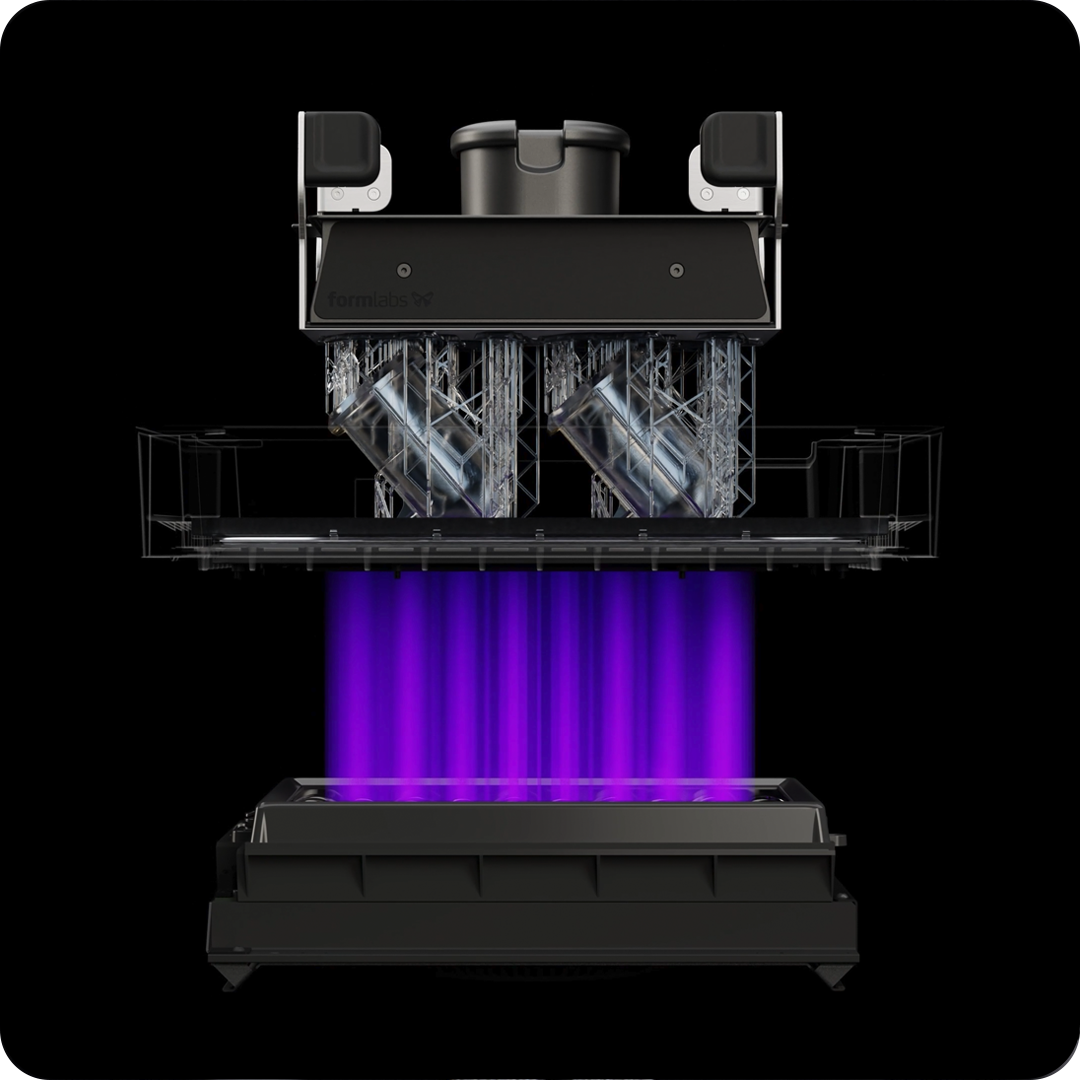
Light Processing Unit
Print with Extreme Speed, Accuracy
Imagine printing complex parts with incredible speed and detail, anywhere on the build platform. That's the magic of the LPU 4. Working in tandem with the Backlight Unit, this high-tech component acts as a light sculptor. It precisely shapes the ultra-high power light from the Backlight Unit into the exact form of each printed layer. This dynamic duo delivers exceptional print speed, accuracy, and quality, consistently across the entire build platform.
Release Texture
Breakthrough Microtextured Optical Film
TForm 4 achieves this feat through a revolutionary technology – the microtextured optical film. This ingenious film, built directly into the Light Processing Unit (LPU), boasts a microscopic texture. This texture creates a thin air gap between the resin tank and the LPU, significantly reducing peel forces. The result? Blazing-fast printing speeds without sacrificing surface finish, fine details, accuracy, or reliability. You can now produce exceptional prints faster than ever before.

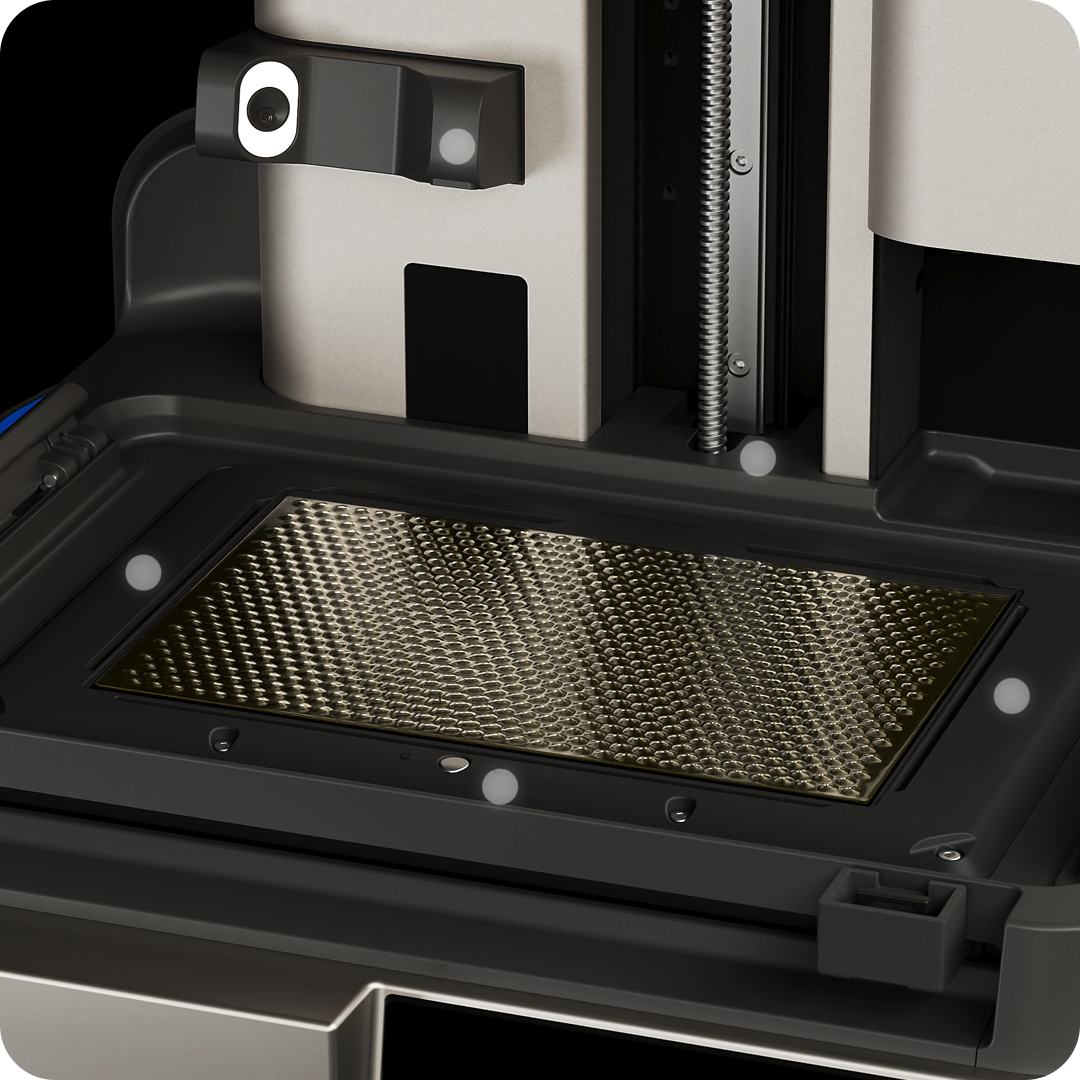
Intelligent Control System
The Power of Precision Control
The Form 4 boasts six intelligent control systems that act as your silent guardian angels. These systems meticulously monitor and maintain key factors like temperature, resin level, print force, and overall print status. This constant vigilance ensures consistent, reliable performance, preventing common printing failures before they even start. The result? Unmatched repeatability – every printer, every print, delivers the same exceptional results.
Related Products
Fuse 1+ 30W
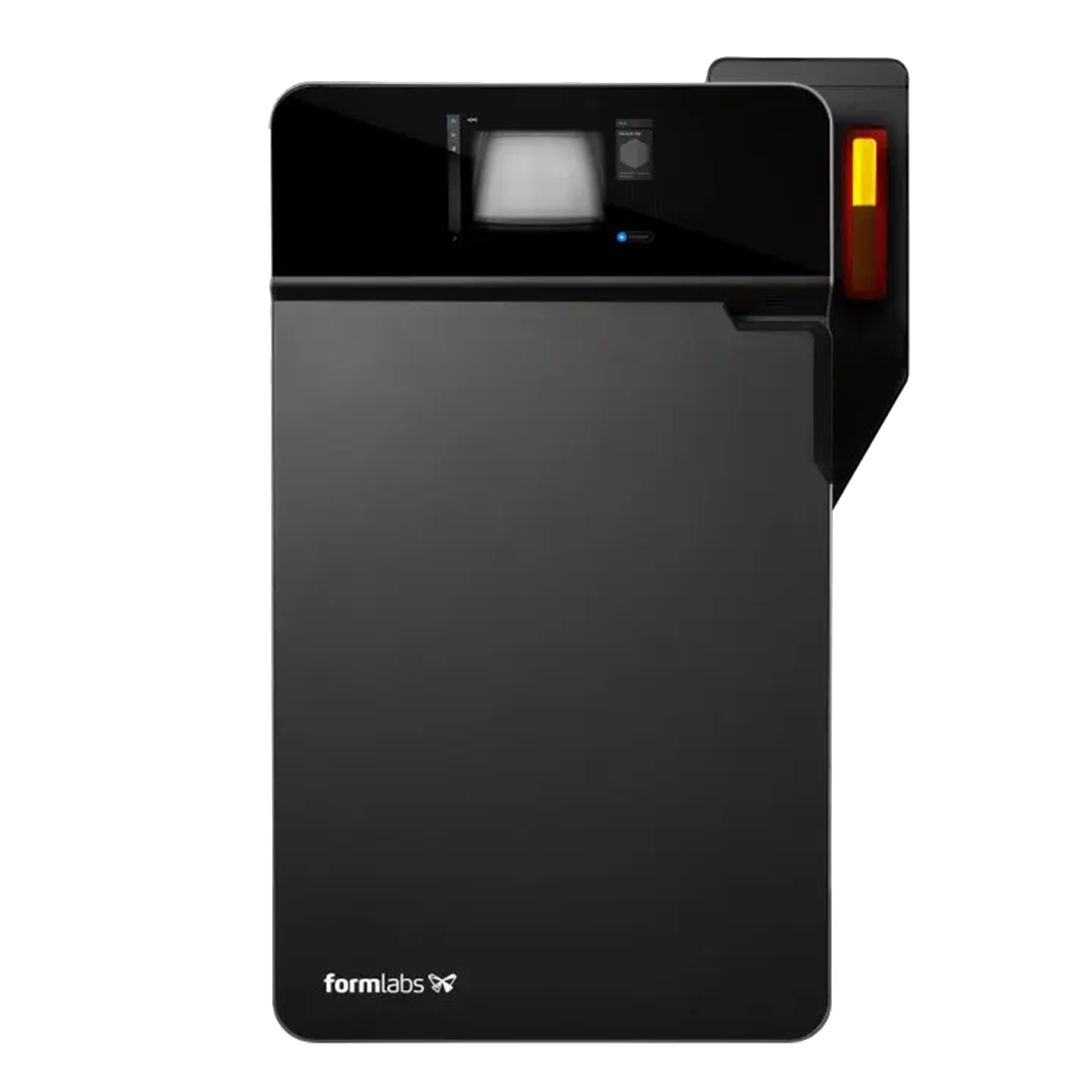
Unleash High-Throughput SLS Printing: The Fuse 1+ 30W
The Fuse 1+ 30W is our industrial-grade SLS 3D printer designed to bring rapid prototyping and production in-house. This compact powerhouse unlocks industry-leading print speeds and a wide range of materials, empowering you to create high-performance parts within 24 hours.
From easy setup to efficient powder recovery, the Fuse 1+ 30W's intuitive hardware and software streamline your workflow at every step.
Take control of your production – contact us today to learn more about the Fuse 1+ 30W!
Software
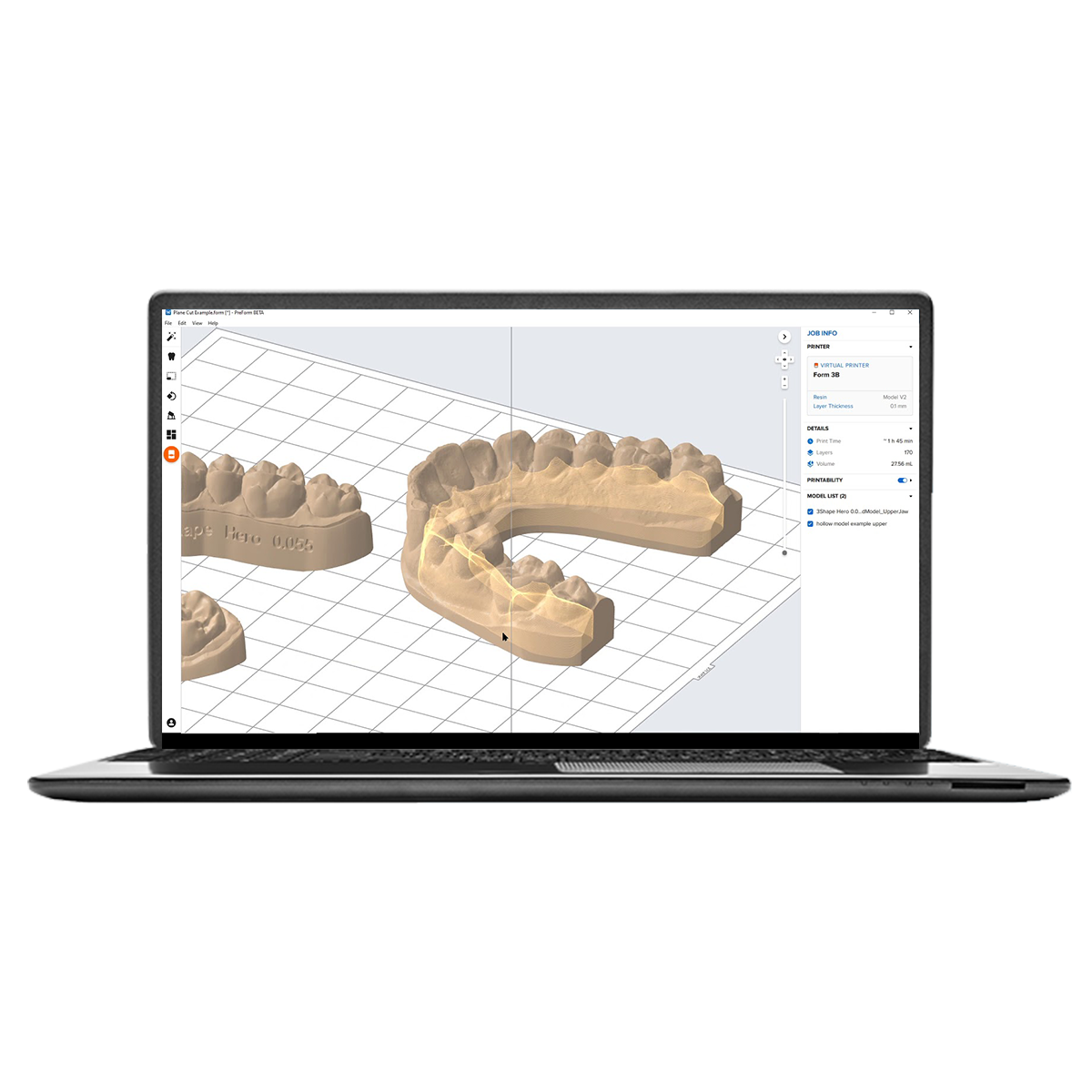
Simplify 3D Printing Workflow with Formlabs Software
Streamline your 3D printing process from start to finish with Formlabs comprehensive software solutions. Effortlessly prepare your models for printing with just a few clicks using our intuitive software. Manage a single printer or your entire fleet from the convenience of the cloud-based Dashboard. Automate repetitive tasks and optimize your workflow for maximum efficiency.
Ready to unlock the full potential of your 3D printer? Contact us today to learn more about Formlabs software solutions.
Materials
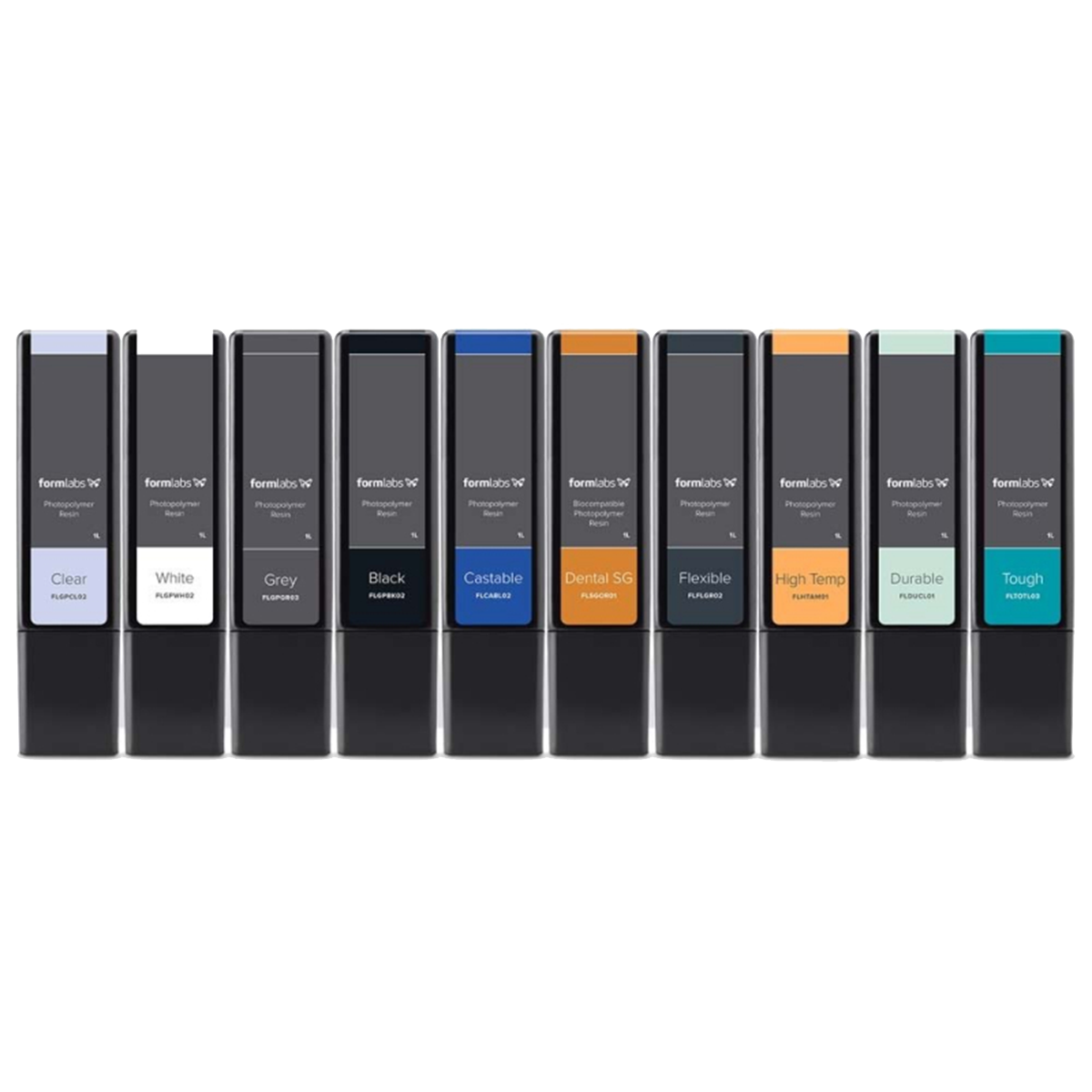
Strength and Stability for Demanding Applications
Need a resin that's as tough as glass? Rigid 10K Resin delivers exceptional stiffness and dimensional stability, making it ideal for high-temperature and high-pressure environments. Its rapid printing capabilities allow you to create molds, jigs, dies, and functional prototypes quickly.
For rapid iterations and initial prototypes, Draft Resin is your champion. It prints up to four times faster than Formlabs' General Purpose Resins, perfect for speeding up your design cycle. This versatile material also excels in creating orthodontic models for clear aligners and retainers.
How the Concept Cars of Tomorrow Are Made With 3D Printing
The Customer
Located in the heart of the UK's auto industry, Vital Auto is an industrial design studio with deep expertise in automotive design. The company’s illustrious clientele includes many of the major automotive manufacturers, such as Volvo, Nissan, Lotus, McLaren, Geely, TATA, and more.
“Clients typically come to us to try and push the boundaries of what's possible with the technology available,“ said Shay Moradi, Vital’s VP of Innovation & Experiential Technology.
When manufacturers don't have time for experimentation themselves, they rely on Vital Auto with any kind of challenge to turn ideas, initial sketches, drawings, or technical specifications into a fully realized physical form.
Read on to learn how Vital Auto—a customer of Formlabs’ fastest growing UK reseller, SolidPrint 3D—creates high-fidelity prototypes and concept cars, rapidly working through iterations using a variety of advanced tools, including a large fleet of Form 3L and Fuse 1 printers.

The Challenge
Vital Auto was founded in 2015 when three friends got together, quit their jobs, and decided to set up a shop—fittingly—in a garage. One of the first contracts the company took on was for the NIO EP9 supercar concept, which instantly set the team on a course to producing extremely realistic, high-fidelity vehicular prototypes.
Depending on the client request, the team will start anywhere from simply a sketch on a piece of paper to an already designed vehicle. They develop cars from a blank sheet, design all the mainframes, all the exterior and interior elements, open/closings, and interactive elements. With five to 30 people working on a single concept, a typical project could take anywhere from three to 12 months.
In this time, a typical show car goes through up to a dozen core design iterations, and within those, there can be further iterations of smaller components until the design meets the expectations of their customer.
“It's all well in our industry to look at virtual properties as a means of evaluating a product before it goes to market. However, I think there's always going to be a place for physical manufactured objects as well. There's nothing that beats the sensation and feeling of holding an object in your hands with the correct weight, with the correct proportions, and the dynamics of how the physical environment changes your perception of that physical object,“ said Moradi.

“Most of our customers will come to us with a new idea, an innovative idea, and something that's never been done before. So the challenges for us are new every single day and they're endless,” said Anthony Barnicott, Design Engineer in charge of additive manufacturing. “These challenges can range from, how can we produce this number of parts in this amount of time to, how can we make a sustainable product or how can we make a part that achieves a particular weight while still achieving a particular performance.”
While traditional show cars are normally made just from milling clay, the team also uses three- and five-axis CNC milling, hand forming, hand clay modeling, and GRP composites. These traditional processes are, however, often not ideal for producing the custom parts required for one-off concepts.
“We've used 3D printing from day one. We wanted to introduce it to our manufacturing processes, not only to reduce costs, but to give the customer more diversity with their designs and their ideas,” said Barnicott.
Today, Barnicott runs a whole 3D printing department, including 14 large-format FDM printers, three Formlabs 3L large-format SLA printers, and five Fuse 1 SLS printers.
"In terms of capacity, all those printers have run 100%, 24/7, pretty much since day one. We use these printers for all areas of our concepts and designs. Typically, we would use the Fuse 1s for our production-based parts and we would use our Form 3Ls for our concept-based parts,” said Barnicott.

The Solution
“We use the Form 3L machines for anything that is an A-class finished surface. So typically in an automotive environment, an interior where you have parts that are not being trimmed with leather or Alcantara or some sort of cloth material. Formlabs materials give us a nice, smooth finish for our painters to work with, we can use these parts straight out the printer, straight onto a vehicle,” said Barnicott.
“What interests me most about the Form 3L machines is their versatility, the ability to do a material change in less than five minutes and the variability of those materials going from a soft, flexible material to a hard and rigid material for us is priceless,” said Barnicott.
Having the Form 3L empowers the team to produce multiple iterations of parts in most cases within 24 hours. They ended up buying three different machines so they could produce up to three different iterations of a part at the same time, even using three different materials. They can then pass on the cost savings to the customer or offer more value by showcasing multiple design options for the same price.
“One of the beauties of using additive manufacturing is the compression of a timeframe. So what do you do in that span of time that you have freed up? We sort of see it as extending the possibility space into imagining alternatives, into adding more iteration loops in the process,“ said Moradi.
“There are many products we produce that we simply wouldn't be able to without our Form 3Ls. With some of the most advanced manufacturing techniques, such as seven-axis CNC machining, we'd be able to produce these parts, but it would come at a huge compromising cost,” said Barnicott.

Having the Form 3L empowers the team to produce multiple iterations of parts in most cases within 24 hours. They ended up buying three different machines so they could produce up to three different iterations of a part at the same time, even using three different materials. They can then pass on the cost savings to the customer or offer more value by showcasing multiple design options for the same price.
“One of the beauties of using additive manufacturing is the compression of a timeframe. So what do you do in that span of time that you have freed up? We sort of see it as extending the possibility space into imagining alternatives, into adding more iteration loops in the process,“ said Moradi.
“There are many products we produce that we simply wouldn't be able to without our Form 3Ls. With some of the most advanced manufacturing techniques, such as seven-axis CNC machining, we'd be able to produce these parts, but it would come at a huge compromising cost,” said Barnicott.
“The Fuse 1 one was our first venture into SLS technology. As a small business, this is a technology we thought we would never be able to have on site. With the Fuse 1, not only do we have one of the machines, but we actually have five of the machines on the site. What these machines enable us to do is produce structural mechanical parts very quickly, not only for testing but for physical applications in most of our concepts. This process would have typically been done by CNC machining, either on our site or off site, depending on the geometry, and we would have to wait two to four days to get the parts in our hands. The Fuse 1 enables us to cover all of this on site and have parts in our hand in most instances, less than 24 hours,” said Barnicott.
The Future
“The progression in technology and 3D printing over the last 10 years is phenomenal. When I first started, producing low volume, niche vehicles, some of the products that we produce today would simply have been inaccessible. And not only am I able to produce these parts today, but I’m also able to produce them very cost-effectively, very quickly,” said Barnicott.
3D printing not only helps the team create better products faster, but also to attract new business. They found that many of their customers turn to them because they want to have access to the latest technologies and they want to have their components made using the latest cutting edge materials.
“There are certain things that you just can't class as emerging technologies anymore. 3D printing is one of those things. It's advanced to a point where everything that we produce is good enough for use in the final presentation stage with all the layers of making that we apply on top of that. 3D printing has gone from almost a novelty to becoming an absolutely inseparable part of what we do,“ said Moradi.


The Fastest Growing Products in Advanced Manufacturing
have arrived.
We are confident that our products and solutions will exceed your expectations.

